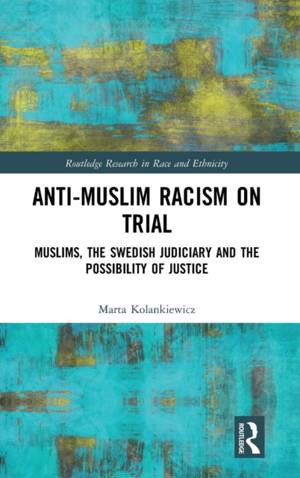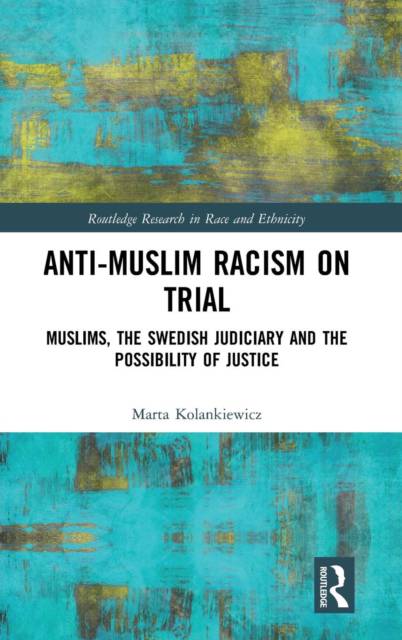
- Retrait gratuit dans votre magasin Club
- 7.000.000 titres dans notre catalogue
- Payer en toute sécurité
- Toujours un magasin près de chez vous
- Retrait gratuit dans votre magasin Club
- 7.000.0000 titres dans notre catalogue
- Payer en toute sécurité
- Toujours un magasin près de chez vous
Anti-Muslim Racism on Trial
Muslims, the Swedish Judiciary and the Possibility of Justice
Marta KolankiewiczDescription
This book constitutes a critical engagement with debates on the possibilities and limits of fighting racism with the help of criminal law. With in-depth analyses of cases of anti-Muslim violence in Sweden--a mosque fire, hate speech and of a series of assaults--Anti-Muslim Racism on Trial sheds light on issues central for understanding the ways in which racism is approached in court. It also illustrates the different forms that Islamophobia can take. Departing from a definition of law as a knowledge regime that embodies the power to decide on the meaning of the acts on trial and to establish a valid version of these events, the author explores the possibility of justice and recognition in court. From within a post-Holocaust and post-colonial context, this book recounts the complex and ambiguous history of laws against racism, examining the ways in which racist practices change in a society where certain manifestations of racism have come to be treated as crimes. As such, it will appeal to scholars of sociology and criminology with interests in Islamophobia, race and ethnicity and violence.
Spécifications
Parties prenantes
- Auteur(s) :
- Editeur:
Contenu
- Nombre de pages :
- 172
- Langue:
- Anglais
- Collection :
Caractéristiques
- EAN:
- 9781138091962
- Date de parution :
- 25-04-19
- Format:
- Livre relié
- Format numérique:
- Genaaid
- Dimensions :
- 156 mm x 234 mm
- Poids :
- 430 g







